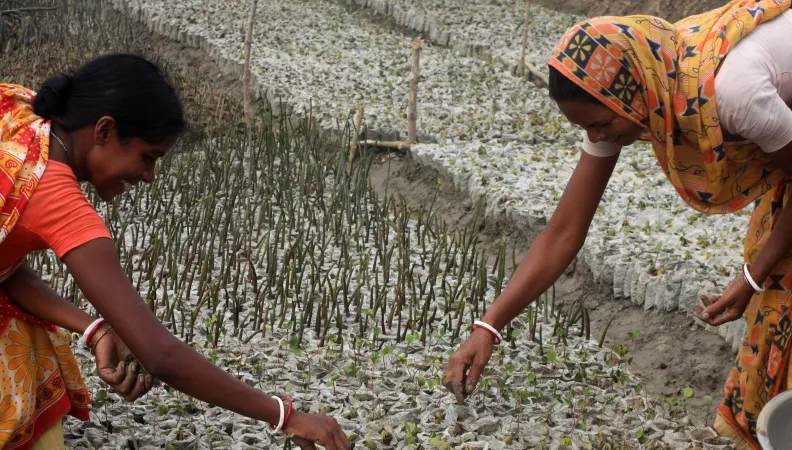Share the page
Reducing lead contamination by building national capability (PURE EARTH)
Project


-
Project start date
-
Status
In progress
-
Estimated date of project termination
-
-
Project financing date
-
-
Financing duration
-
4,5 years
-
Type of program
-
FFEM
-
Global financing amount
-
2700000 €
-
FFEM financing amount
-
840000 €
-
Project lead member institution(s)
-
Ministry for Europe and Foreign Affairs
-
Country and region
-
Bangladesh
-
Type of financing
-
Grant
-
Beneficiaries
-
ONG Pure Earth
-
Type of beneficiary
-
NGO, Foundation
Bangladesh has one of the highest blood lead levels in the world. With support from the FFEM, the NGO Pure Earth aims to bring an end to the serious health, economic and environmental consequences of this contamination.
Context
Environmental pollution from lead is particularly alarming in Bangladesh. Especially near informal sites that recycle used lead-acid batteries, where pollution can reach record levels. According to a study by the American National Institute of Environmental Health Sciences (2013), the cost of inaction in the face of this problem is almost USD16 billion.
The project supported by the FFEM is happening amidst demographic, climatic and migratory pressures, heightened by the potential for industrial growth which is so reliant on the battery sector. Alongside the Bangladesh government, it seeks to develop the tools necessary for better management of used lead-acid batteries, so reducing lead pollution.
Description
The project has 4 components
- Making available to the Bangladesh government, NGOs and the private sector appropriate tools, technical capabilities and the human and financial resources necessary for the ecologically-rational management of used lead-acid batteries.
- Providing the government with the economic tools to transition used battery recycling from the informal sector into the formal economy.
- Reinforcing the ability of the Bangladesh government to design and implement a programme to identify and clean up the priority abandoned recycling sites contaminated with lead.
- Raising awareness of those involved of the impacts of lead on the environment and health.
Impacts
- Reduction of contamination in soils and watercourses.
- Less poisoning amongst target populations most at risk (operators and their families, particularly children and pregnant women).
- Introduction of the circular economy and an improved recycling process.
- Improvement in institutions’ detection and management of patients affected by lead pollution.
- Creation of new jobs and the encouragement of entrepreneurs (secure battery recycling, sanitation etc.).
- Reform of fiscal incentives to promote better manufacturing and recycling.
Exemplary and innovative characteristic
Given the context, characterised by significant gaps in information and training for public, private and civil participants, this project supported by the FFEM is particularly innovative in Bangladesh. Its participative approach via the multi-stakeholder advisory group is a clear demonstrates of this innovation. Co-founded in 2020 by Pure Earth, the group includes members from government and from civil society who work together to tackle the problem of lead exposure across the country.
The ability to adapt economic tools and market-driven incentives is also under assessment to improve the supply chain and control the manufacture and recycling of batteries.
Also, innovative methods are being adopted, such as a low-cost, low-tech method for assessing sites contaminated by lead.


